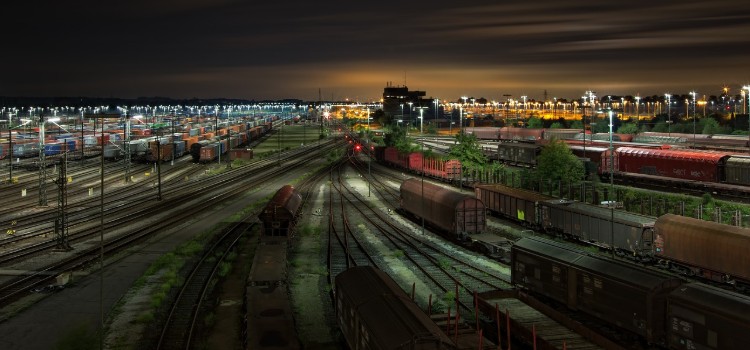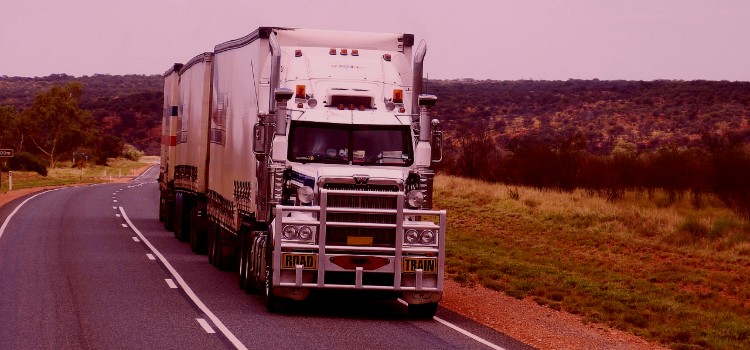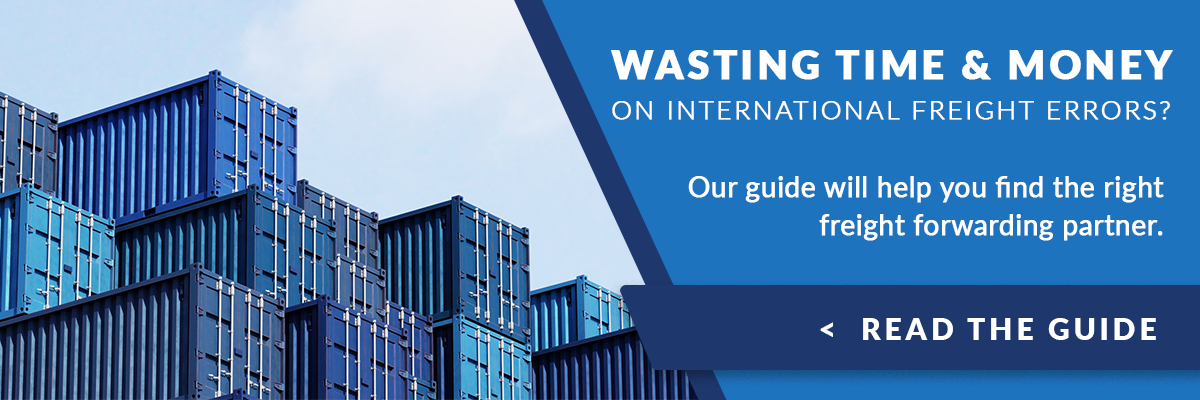
Intermodal transport is defined as any transportation that uses more than one method of delivery —by definition, that includes all deliveries that use any combination of air, truck, rail, and ocean transport.
However, if you ask any seasoned freight professional about intermodal transport, they’re going to assume you’re referring strictly to land transportation. The intermodal element of any overseas shipment is a given—it’s how you decide to deliver that freight once it’s on land that’s worth consideration. That’s why, in the freight forwarding industry, intermodal transportation as a rule usually refers to the combination of road and rail to get a product from point A to point B.
All truck or part train: weighing the options
In general, when dealing with shipping containers, there are two schools of thought for shipping domestically:
-
Straight trucking: Take the container from the boat, strap it to a truck and trailer, then drive it straight to the destination.
-
Intermodal transport: From the boat, move the container to a railcar, the cargo travels across the country by rail, then is transferred to a truck for delivery to the final destination.
Each option has its benefits, but which is right for your freight? Here are a few elements to consider.

Time
An important thing to consider when determining if intermodal shipping is right for you is time sensitivity. Generally speaking, rail transport takes longer than trucking thanks to the extra time to move goods from rail to trailer.
So if the speed of delivery is your determining factor, your decision will be an easy one. For instance, companies delivering to big box stores normally don’t use intermodal because the penalty fee that comes with a late delivery isn’t worth the risk of the extra time intermodal adds.
Cost
The flipside of expediency is cost, and intermodal transport is almost always cheaper than straight trucking. Freight transport by rail is significantly cheaper than truck thanks to the rail’s superior fuel efficiency.
Rail also sees the benefit of long trains of railcars that carry shipping containers stacked two high. And since a freight train only takes two people to operate, that’s a significant increase in goods shipped per personnel required.
Flexibility
Intermodal transport is becoming increasingly accommodating in terms of destination and timing these days thanks to partnerships between railways and shippers. That said, there is still some additional flexibility that comes with straight trucking that may factor into your decision.
Say there’s an emergency and your load that is on the way to Los Angeles from New York needs to be diverted to Tallahassee. When your freight is traveling by truck, the shipment can be diverted easily, though there will likely be a fee. However, should your freight be traveling by rail, it’s much more difficult to get that train to stop mid-route to have one of the containers removed and rerouted.
It should also be noted that rail might not be a viable option depending on the location of the tracks and the destination of the cargo. Infrastructure is another aspect of flexibility that needs to be considered.
Sustainability
The final word on the benefit of intermodal transport is its added sustainability. Based on fuel costs and efficiency alone, intermodal rail transport is a massively more sustainable option than shipping containers solely by truck.
According to CSX, moving freight by rail is 4 times more fuel efficient than moving freight on the highway. Gallon-Per-Ton fuel efficiency over rail is incredible; trains can move one ton of freight over 470 miles on a single gallon of fuel.
It's all about striking a balance. Intermodal transportation may not always be the best option for shipping time-sensitive deliveries. However, what intermodal lacks in speed, it makes up for in efficiency in cost and fuel, which may make it the right shipping solution for your company when not constrained by time. When determining the right option for your freight, be sure to consult with a freight forwarding expert in air, sea, truck, and train transportation, as they will be able to more accurately calculate the cost versus timeline.




